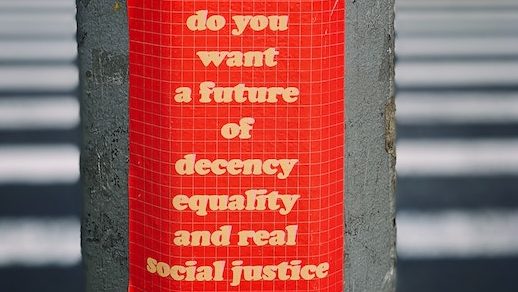You would imagine that victims of human trafficking would not be arrested and punished for crimes they were forced to commit by their traffickers.
Yet, unfortunately this is the reality for many victims across the United States. And these criminal records follow around victims for the rest of their lives, making it nearly impossible to find a job, stable housing, or even access food stamps.
Take Action: Support for UK Trafficking Victims
As Erin Marsh writes in JD Supra, “survivors are being punished, de facto, for their victimization.”
The tide may be turning, though, as states are starting to wake up to this injustice and correct the problem in existing legislation.
Since 2010, many states have tried to correct this problem, enacting laws that create a path for survivors of human trafficking to clear criminal records related to being trafficked. Unfortunately, there are still many states that have not done so or have limited relief, only for minors. The broader laws that do exist are woefully ineffective for most survivors.
When trafficking survivors encounter law enforcement for the first time they generally do so as offenders, not victims.
Sex trafficking victims are commonly arrested on prostitution charges, or for other crimes such as possession of weapons, drugs, or identity theft — all of which may well have been orchestrated in some way by their trafficker.
Labor traffickers may force their victims to manufacture or sell drugs or to move drugs from place to place. Labor trafficking victims can also be arrested for various things such as possession of false identification documents, financial crimes, or minor crimes like trespassing.
Children who are trafficked for both sex or labor are often charged with status offenses like truancy and running away.
In 2010, New York became the first state to enact criminal records relief for trafficking survivors. Today, all but six states (Alaska, Iowa, Maine, Minnesota, South Dakota, and Virginia) and the federal government have yet to follow suit.
In a new report, State Report Cards: Grading Criminal Record Relief Laws for Survivors of Human Trafficking, by Polaris, the American Bar Association’s Survivor Reentry Project, Brooklyn Law School, the University of Baltimore Law School, and numerous survivor consultants, state laws are analyzed and ranked according to their level of criminal record relief for trafficking victims.
The majority of states received failing grades, and no state received an “A” grade.







Freedom United is interested in hearing from our community and welcomes relevant, informed comments, advice, and insights that advance the conversation around our campaigns and advocacy. We value inclusivity and respect within our community. To be approved, your comments should be civil.